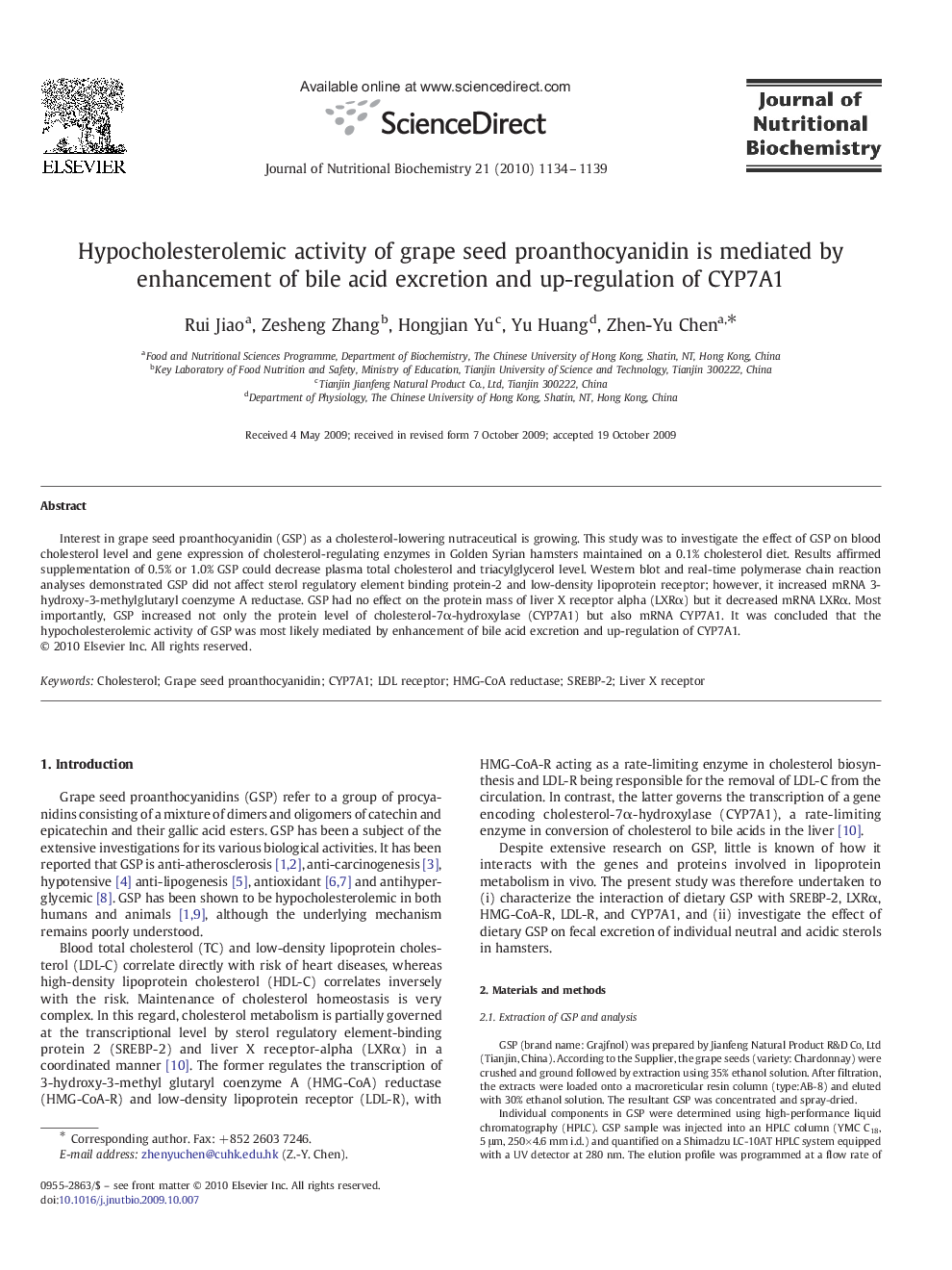| Article ID | Journal | Published Year | Pages | File Type |
|---|---|---|---|---|
| 1989996 | The Journal of Nutritional Biochemistry | 2010 | 6 Pages |
Interest in grape seed proanthocyanidin (GSP) as a cholesterol-lowering nutraceutical is growing. This study was to investigate the effect of GSP on blood cholesterol level and gene expression of cholesterol-regulating enzymes in Golden Syrian hamsters maintained on a 0.1% cholesterol diet. Results affirmed supplementation of 0.5% or 1.0% GSP could decrease plasma total cholesterol and triacylglycerol level. Western blot and real-time polymerase chain reaction analyses demonstrated GSP did not affect sterol regulatory element binding protein-2 and low-density lipoprotein receptor; however, it increased mRNA 3-hydroxy-3-methylglutaryl coenzyme A reductase. GSP had no effect on the protein mass of liver X receptor alpha (LXRα) but it decreased mRNA LXRα. Most importantly, GSP increased not only the protein level of cholesterol-7α-hydroxylase (CYP7A1) but also mRNA CYP7A1. It was concluded that the hypocholesterolemic activity of GSP was most likely mediated by enhancement of bile acid excretion and up-regulation of CYP7A1.
